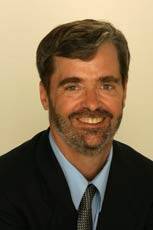Last time we met, I expressed some concerns about the future of Catholic schools in states and municipalities with high property taxes. I suggested that the next generation of closings and consolidations will be centered not in the inner cities, but in the older suburbs that support services such as paid fire departments, local police forces, extensive parks and recreation facilities, and, of course, public education. In such areas, five-figure property taxes are bound to have an important effect on families deciding between free public schools or tuition-charging Catholic schools. Based on the reaction I have received in recent weeks, Im not the only person with such concerns.
The question Catholics may face in the next quarter-century may be this: Can we imagine American Catholicism without Catholic schools, or certainly without the number of schools we have now? And if further closings and consolidations are inevitable, even in strong, affluent parishes, what models of religious education should we investigate today in preparation for tomorrow?
Even as I write, my two middle-school children are attending a meeting of their faith-based youth group, which is sponsored not by our parish but by a local Methodist church, and is supervised by an energetic minister named Brenda Elhers. The group, part of a broader Methodist network called Junior Youth Fellowship, coordinates service projects, encourages fellowship, andheres the hard partattempts to offer instruction in the tenets of Christianity. The program is designed to prepare Methodist eighth-graders for confirmation, but it is open to middle-schoolers of all faiths.
As an outsider, though hardly the only Catholic parent whose children attend J.Y.F., Ive been impressed with Rev. Elherss ability to connect service with spirituality. My kids are getting the best of both worlds: They are receiving a sound background in Catholic doctrine in their parish school, and through their membership in J.Y.F. they are receiving an education in the application of Christian principles.
Could programs like J.Y.F. offer a model for what Catholic education might become if schools grow increasingly hard to sustain? Frankly, that very thought occurred to me recently as I watched my kids emerge from a meeting with smiles and chatter that are quite unlike the expressions I associate with classroom learning. Granted, J.Y.F. is not school, and even a faith-oriented youth group isnt a religion class or C.C.D. But still, I wondered, could this well-organized, effective, andlets face itcost-effective program provide a model for how a future generation of Catholic children may be catechized?
I certainly thought so, but a conversation with Rev. Elhers offered a cautionary tale. We do service and fellowship well, she said, but the religious education piece is the hard part, especially at the high school level. She also coordinates a high school youth group that, among other things, carries out three service projects a year. In a few months, the group will journey to the Texas-Mexico border to assist Mexican children whose parents have crossed into the United States.
But service projects alone, no matter how worthy, cannot provide the sort of religious education young people need, Rev. Elhers said. A parent like myself might be impressed by earnest projects and good fellowship, but without proper religious instruction the picture is incomplete.
In doing youth groups, I see how little time I get with high school students, Rev. Elhers said. I get them for two hours once a week, and in general, we havent quite figured out how to get them involved in the life of the church.
That concern is hardly unique to any one church or denomination today. Catholics have had a relatively easier time of it over the last century or so, thanks to that great building-block of faith and practice, the parish school. But what happens if those schools continue to disappear? And here is another question that might well become part of the Catholic conversation over the next three decades: Could regional consolidations and well-planned closings actually help us to create more vibrant youth ministries by redirecting resources and energy?
I dont claim to have the answer, but I surely would argue that this is a conversation that ought to take place within the church, and that we ought to begin the search for alternative models of catechesis and values-centered instruction. That search would hardly be a lonely one, for other communities of faith will be similarly engaged.
If we are destined to have fewer (and, perhaps, stronger) Catholic schools in the future, if Catholic parents will find themselves hard-pressed to pay tuition when their property taxes hit five figures, it would seem imperative that clergy and laypeople think about what comes next. Vibrant youth organizations that combine religious education with service and fellowship require trained leaders, and even then, as Rev. Elhers points out, the task is not easy.
But the burdens are lighter when they are shared. Whatever our differences over doctrine, Christians in the 21st century surely share a concern about the spiritual well-being of their young people. Where schools are becoming untenable, Catholics ought to take a hard look at how other denominations transmit faith and values without the benefit of classrooms.
And, even better, we ought to join in on the fun.








